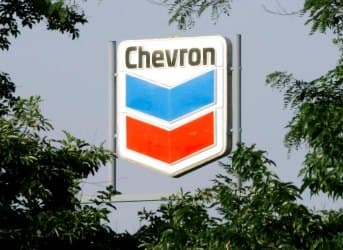Few people realize that Ecuador is the smallest oil-producing member of the Organization of the Petroleum Exporting Countries. Ecuador rejoined OPEC in 2007, after leaving the organization at the end of 1992. The oil sector is critical to the Ecuadorian economy, accounting for about 50 percent of the country’s export earnings and about one-third of all tax revenues.
Ecuador produces approximately 500,000 barrels of oil per day, most of which is exported, primarily to the United States, but like many other oil exporting nations, Ecuador has begun to look towards China as an alternative export market and source of investment.
Given the centrality of hydrocarbons to Ecuador’s economy, resource nationalism and debates about the economic, strategic, and environmental implications of oil sector development occupy a central place in Ecuadorian politics, and the administration of President Rafael Correa has decided to make pressing a decades-old lawsuit against Chevron a central plank of its policies. Not surprisingly Chevron, America’s second largest oil company, is fighting back with all the formidable legal weapons at its disposal.
At issue is the environmental degradation suffered in Ecuador’s Lago Agrio oil field in Oriente province, where Texaco Petroleum and Gulf Oil began operations in 1964 as a joint consortium. Texaco, later acquired by Chevron, operated the Lago Agrio oil field from 1972 to 1993 and Petroecuador, Ecuador’s state oil took over operations there after Texaco left. In 1993 Texaco was found responsible for dumping billions of gallons of toxic waste and the company subsequently spent $40 million cleaning up the area during the 1990s. In 1998 the Ecuadorian government signed an agreement with Texaco accepting the clean up as complete and absolving Texaco of any further responsibility. The money quote is, “…in 1998 Ecuador and Petroecuador executed an agreement releasing TexPet, its affiliates and principals from liability for environmental impact in the former Concession area.”
Related article: Chevron Invests $12 Billion on Gulf of Mexico Expansion
Fast forward to February 2011, when an Ecuadorian court ordered Chevron to pay over $18 billion in damages to indigenous communities that it found to be harmed by Texaco's operations in Ecuador between 1964 and 1990. Not surprisingly, Chevron is appealing, on the position that the 1998 agreement remains legal and binding, and last month an international arbitration tribunal affirmed the accords’ validity. Donziger and the Ecuadorians have been unable to collect the award in Ecuador because Chevron no longer has operations there and in 2011 Chevron obtained an injunction from Judge Lewis Kaplan in New York blocking enforcement of the judgment anywhere outside Ecuador, but the 2nd U.S. Circuit Court of Appeals subsequently reversed Kaplan’s ruling.
Taking the environmental high road, on 5 October Correa said on his “Enlace Ciudadano” television program, “If Chevron thought that it would trample on a small country with its millions, it chose the wrong country to mess with. Because here we have a small country, but great in dignity and sovereignty.”
Accordingly Quito is portraying the lawsuit is a long delayed bid for environmental accountability, while Chevron seeks to portray is as a shakedown by a left-leaning populist government.
Chevron fought back by filing a RICO (Racketeer Influenced and Corrupt Organizations Act) lawsuit in 2011 against the Ecuadorian plaintiffs and their American lawyer, Steven Dozinger, “Chevron Corp v. Steven Donziger et al, U.S. District Court for the Southern District of New York, No. 11-0691.” Chevron argued that the Amazon Defense Front had entered into its lawsuit fraudulently, through extortion, mail fraud, wire fraud, and witness tampering.
The trial opened on 15 October before U.S. District Judge Lewis Kaplan, and the fireworks have already begun. Chevron maintains that Donziger bribed a former Ecuadorian judge, Alberto Guerra, to allow Donziger's colleagues to ghostwrite the entire 188-page, $19 billion environmental judgment. Unfortunately for the plaintiffs, Guerra testified on 22 October that he was paid thousands of dollars by lawyers for the plaintiffs to rule in their favor and that another former Ecuadorian judge, Nicolas Zambrano, who issued the $19 billion ruling, was promised $500,000.
Guerra testified that he received the bribes sometimes as bank deposits and other times in envelopes filled with 20 and 50 dollar bills, while Zambrano has denied that he was bribed by the plaintiffs and that Guerra or the plaintiffs were involved in writing his decisions.
Related article: Mapping Mangroves for Our Carbon Future
Donziger’s spokesman Chris Gowen stated, "We are completely and utterly denying the allegations by Chevron. Steven Donziger did not ghostwrite a judgment. Steven Donziger did not bribe a judge." Donziger countered that Chevron has agreed to pay Guerra at least $326,000 dollars through 2015 for cooperation and favorable testimony.
Correa has called for a global boycott of Chevron as the trial continues, with a new hearing scheduled next week.
ADVERTISEMENT
Which way will the case go? Judge Kaplan, who since 2011 has largely sided with Chevron, was subjected to a recusal request from the Ecuadorian plaintiffs, and appeared before a three-judge panel on 25 September, where the request to remove him was unsuccessful. Accordingly, Kaplan is still overseeing the case, though he directed U.S. Magistrate Judge James C. Francis to decide the issue, according to the Ecuadorian Embassy in Washington DC.
In the meantime, the oil slop in Lago Agrio from Texaco’s 350 abandoned oil wells and 1,000 open waste pits continues to fester.
By. John C.K. Daly of Oilprice.com


















